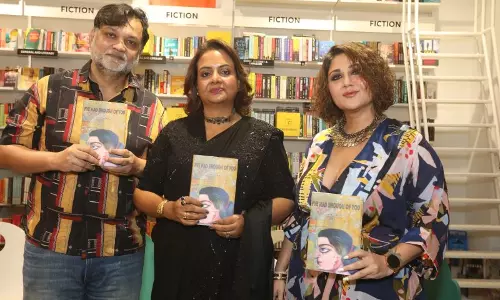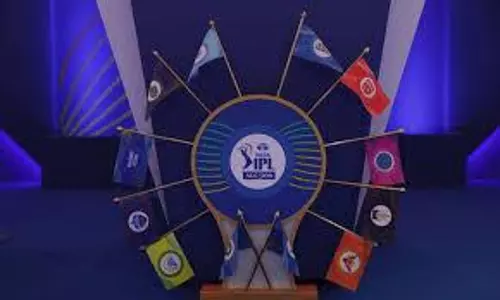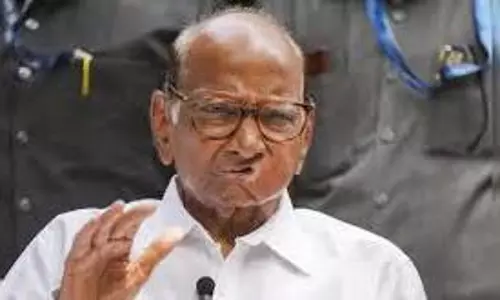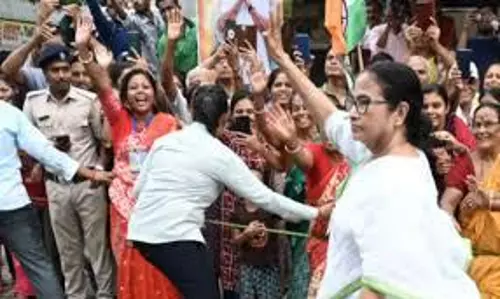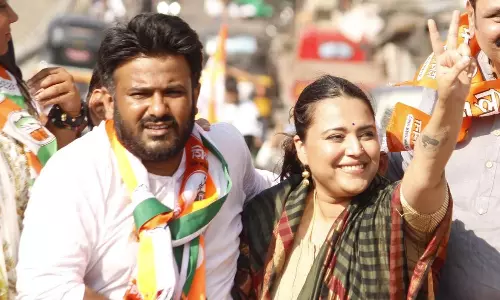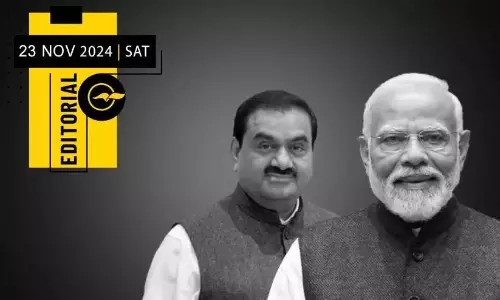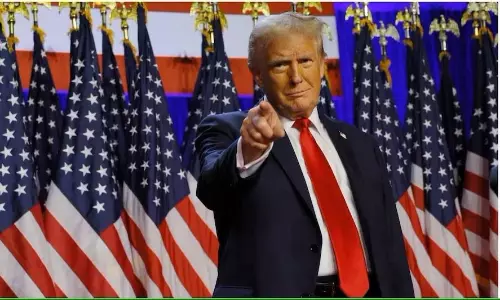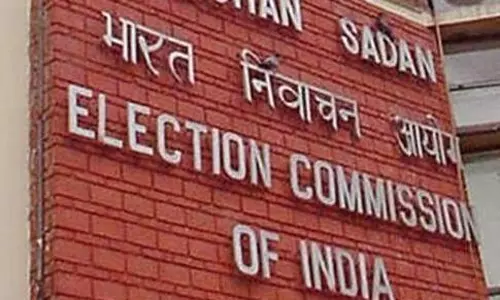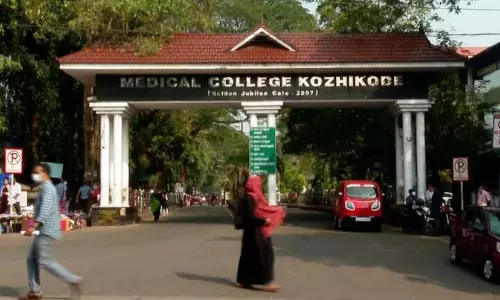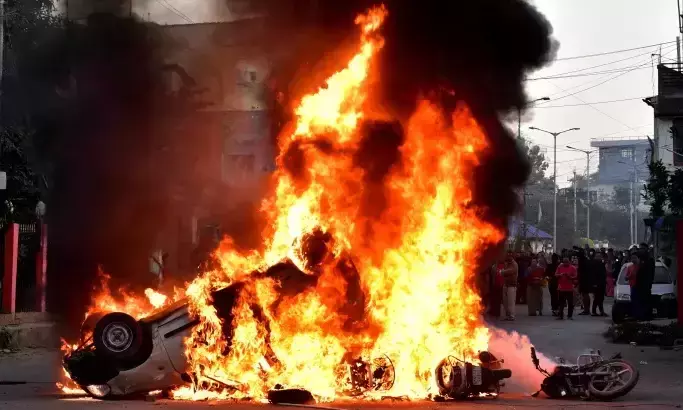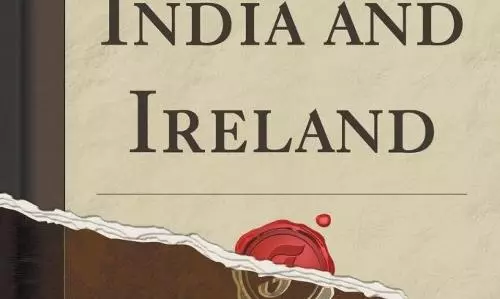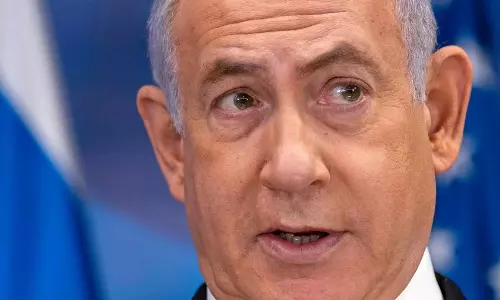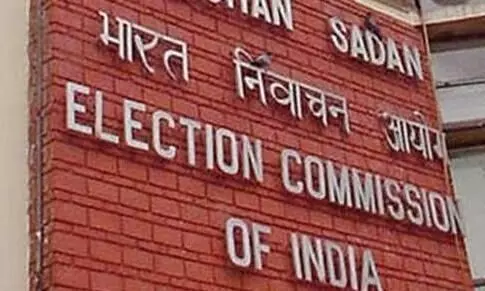
The waste called the Election Commission
text_fieldsIn India, which is described as the world's largest democratic country, the Election Commission, which is an independent system, has been entrusted with the task of conducting impartial and fair elections and preserving the dignity of democracy. Conducting elections is not limited to announcing the polling date, checking the documents received, accepting the eligible candidates and rejecting the ones that are not, completing the polling process, counting votes on the appointed day, announcing the winner, and the number of votes received. The Commission's Model Code of Conduct comes into effect from the moment the election is declared to ensure that there are no unfair and unethical actions or abuse of power to influence the voters in a way that subverts the democratic process. Despite all these precautions and regulations, are the elections now being conducted fairly and impartially?
Also read: Civil servants joining RSS could harm public trust: Policy body calls for reinstating ban
The country went into the 2024 general elections after preparing amendments to laws in such a way as to facilitate the appointment of those the executive is interested in as election commissioners. The consequences were obvious. As historian Ramachandra Guha and senior media person P. Raman pointed out, the 18th general election was a flagrant violation of all forms of political etiquette. Even after months, the toxic fumes of communal hatred, which were released in the campaign platforms where crores of rupees tainted with corruption were collected in the name of election bonds, have not left the atmosphere of the country. The Commission functioned as if it were a subsidiary branch of the government, not daring to reprimand, restrain, or disqualify leaders who engaged in hate speech.
Also read: Chair attack on Maharashtra BJP leader: police books 40-45 people
The case of the Jharkhand and Maharashtra elections held the other day is also relevant. The leaders of the ruling party in both states unleashed a communal campaign that is more poisonous than in the Lok Sabha elections. The BJP's election campaign video ads in Jharkhand are an accurate reflection of the party's anti-social and anti-Muslim sentiments. The footage shows a large group of people wearing veils and hats storming into a wealthy Hindu home and operating equipment inside while occupying the house. The ad ends with threatening words that if the BJP does not win, people like this will invade your home and take its possession. The characters were dressed like opposition party leaders. There are several other ads with anti-Muslim themes. All of them were telecast across the country through national channels and transmitted through social media. Anti-Muslim sentiment may be acceptable for these parties to use as a crutch to propel the party to power again and again. But how could the Election Commission, as an independent constitutional agency in a secular country, tolerate it? In the absence of the government's servitude and anti-Muslim prejudice, these hate propaganda videos of the BJP have enough legal offences to cancel the recognition of the party itself. The Commission was not prepared to take voluntary action against this communal acts despite all the machinery to keep the election (campaign activities) under constant surveillance. It was only when the opposition parties filed a complaint and civil rights and social activists protested against this disaster that the Central Election Commission directed the State Election Commission to demand the removal of the ad. Although removed from BJP's official social media pages, the advert is still circulated through parallel sources across the country.
Also read: Constitution is 'blank' for Modi because he never read it: Rahul
It goes without saying that the by-elections in nine assembly constituencies in UP on the 20th were also a subversion of the very concept of democracy. There was extreme state interference, including police officers pointing guns at women voters who came to the booths to vote and illegally checking their identity cards. There were also incidents of Muslim voters being sent back without being allowed to vote. Although the Election Commission was ready to take action on the opposition's complaint that too only after the evidence including the video footage came out, many voters had decided not to cast votes by then. All this should be seen as a pre-emptive sanction to carry out such unethical activities without any hesitation in the coming elections. When the Sangh Parivar turns the elections, which are often described as the festival of democracy, into a festival of fear and communal hatred, then why does the country have such a Commission if it is not ready to stop it in the right manner?
Also read: Misleading Ads targeting opposition lead to FIR against BJP leaders in Jharkhand




